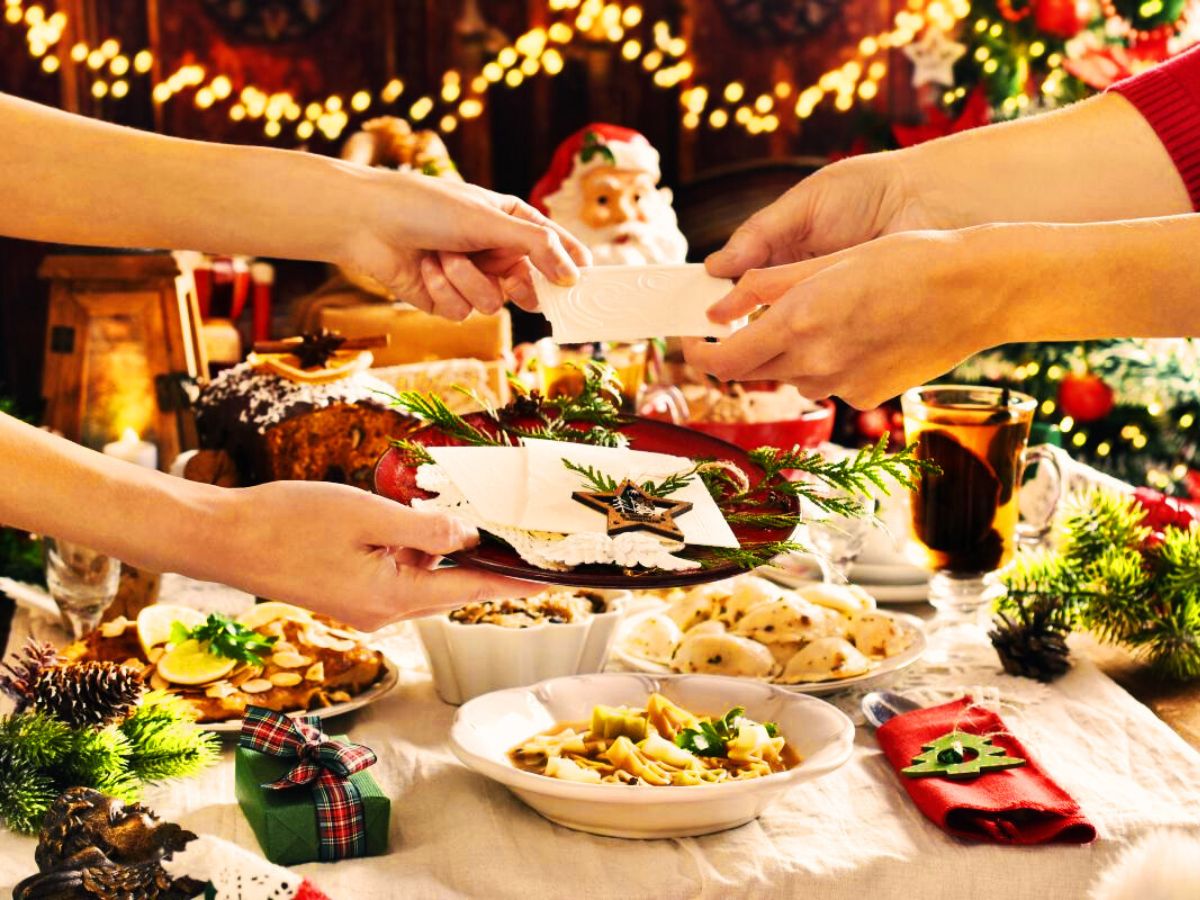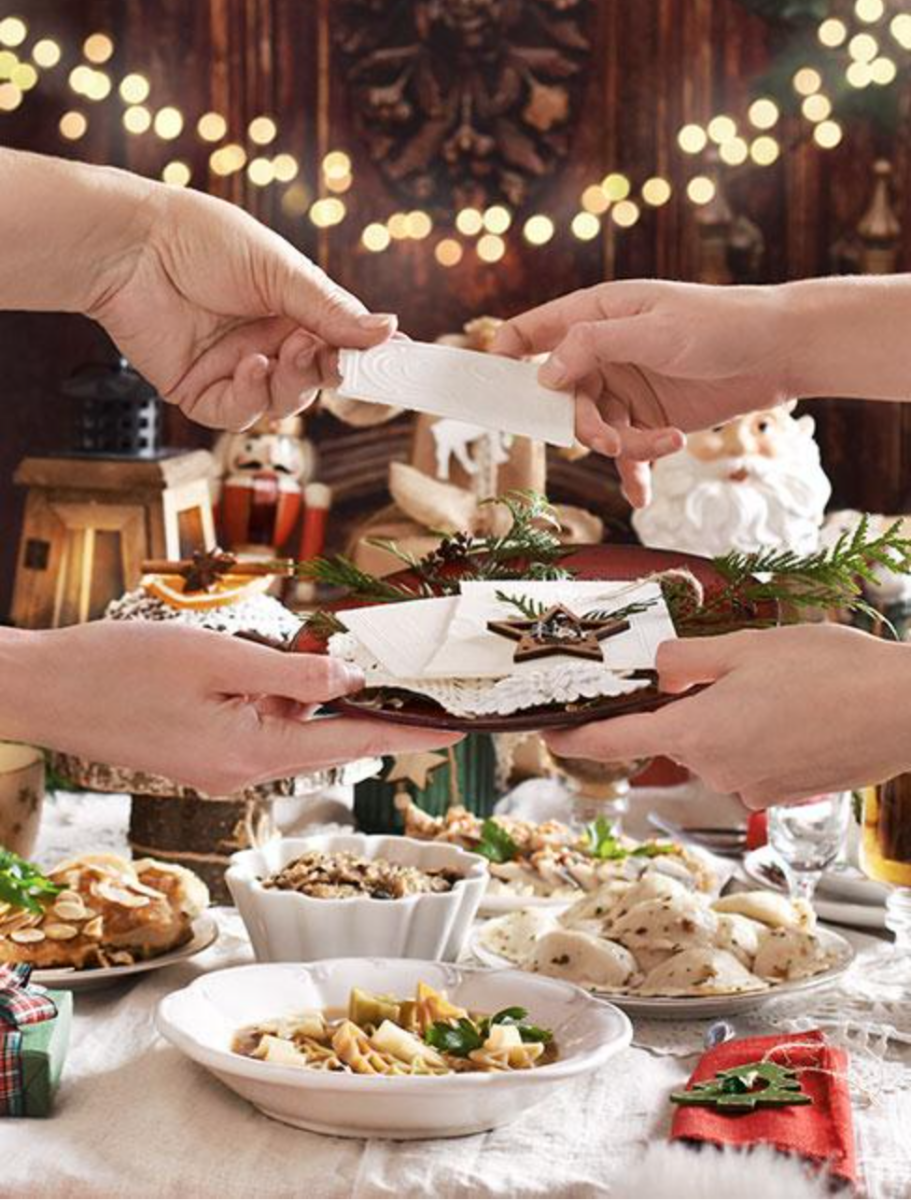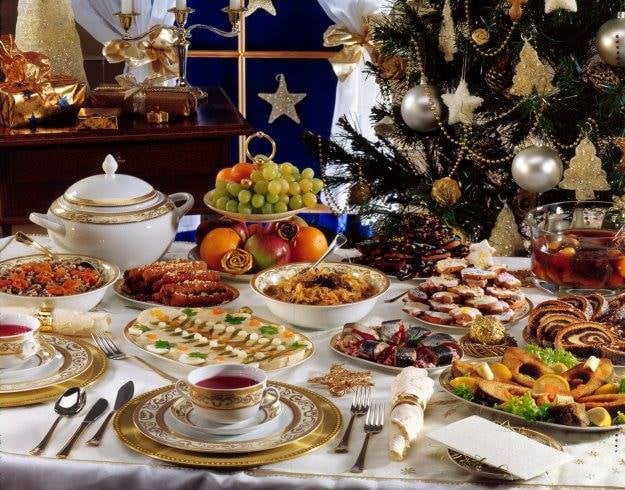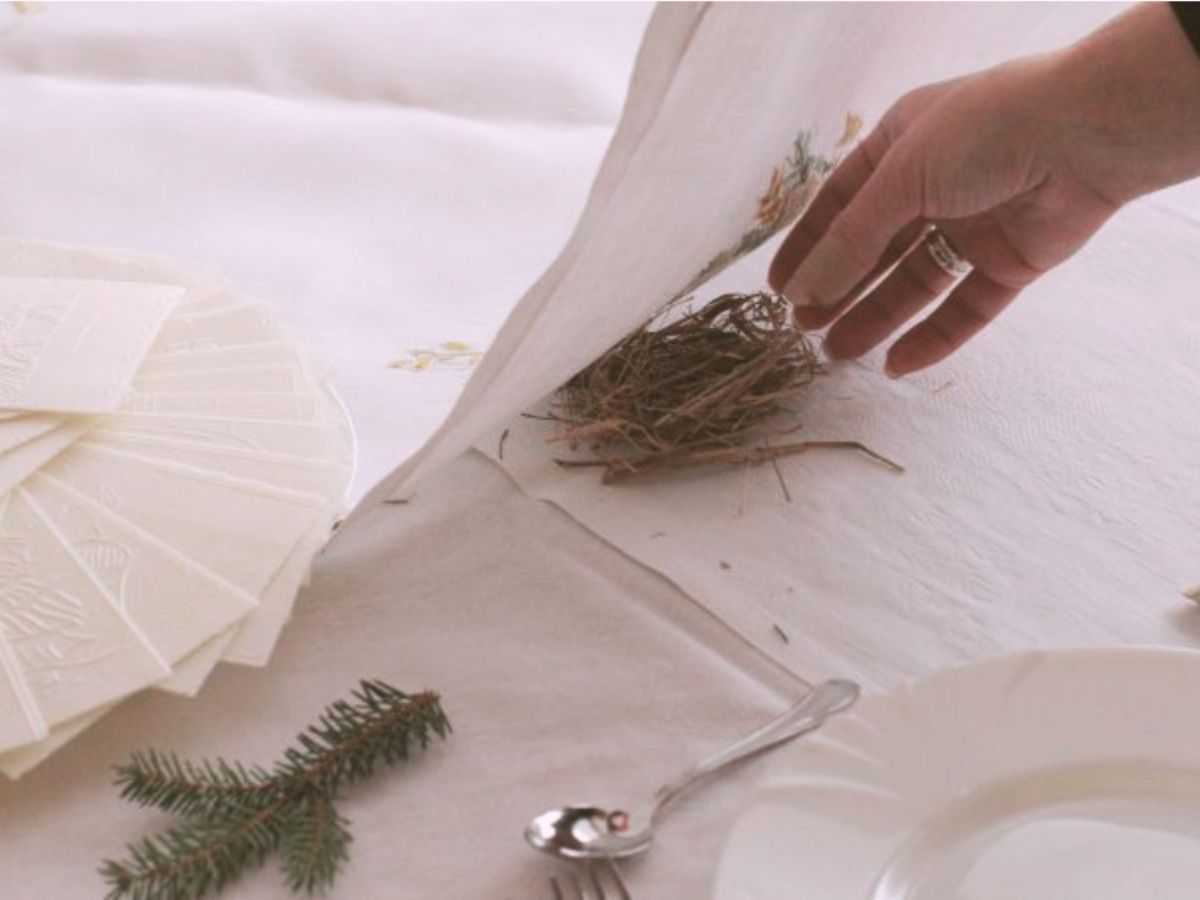
Christmas traditions in Poland. Step into the enchanting world of Polish Christmas traditions, where the magic of old customs, forgotten in other countries, is still very much alive and oh-so-popular. In Poland, as winter festivities unfold, a special, unique atmosphere wraps you in warmth and charm, which come from customs nurtured over years and ages. Here we take you to the heart of it all – the quintessential Polish Christmas traditions that will sprinkle that extra touch of magic to your Christmas Eve, turning it into a true Polish Wigilia!
► Holidays and non-working days in Poland 2024
Once-upon-a-time Polish Christmas
Centuries ago in Poland, rites of passage and the end of the year were intertwined with the anticipation of the „new” that was to come. During that time, people sought to predict the future and gain favor from the deities. On the evening of the winter solstice, gifts were exchanged, wishes were made, and a hearty feast was enjoyed, symbolizing hope for prosperity in the coming year.
► Read all our other articles about life in Poland and take a look at the very best of Polish Observer in English here.
After the year 966, when the first Polish ruler was baptized and Poland became a Christian country, many Christian holidays continued to align with traditional dates and rituals. Similar to pagan times, during the Christmas season, it was forbidden to borrow money, quarrel, or fight. Fortune-telling was done by observing the direction of the steam coming from one’s mouth, and luck was tested in dice games. Food was shared with guests from the afterlife, and a bundle of hay had to be placed in the corner of the room. After the feast, Christmas carolers arrived, adorned with animal masks and engaging in dances that traced back to pagan times. Since these festivities were associated with fertility and rebirth, the tradition endured.
Nowadays, when Christmas comes, Polish homes are flush with parties, family gatherings and gifts. A straw sheaf (called chochoł) lies in a bundle at the corner of the main room with hay hidden under a white tablecloth. During Christmas Eve we wait for the first star to appear in the sky and then we share pieces of wafers wishing each other a happy Christmas. The table must boast precisely 12 dishes, mirroring the number of apostles, a symbolic tradition believed to usher in prosperity for the new year. To ensure a bountiful year, it’s essential to taste a bit of everything! Traditional dishes include beetroot soup with mushroom-stuffed dumplings, mushroom soup, pierogi filled with sauerkraut and mushrooms, carp, and herring. Among the desserts, the makowiec takes center stage—a poppy seed cake symbolizing wealth (akin to lentils) alongside piernik, the beloved gingerbread.
The secrets to a perfect Polish Christmas
Here are the most important Christmas traditions in Poland today, which form an indispensable part of the Polish celebrations, without which a Polish Wigilia – or Christmas Eve – wouldn’t be complete.
Twinkle, twinkle little… First Star (Pierwsza gwiazdka)
The Polish Wigilia supper traditionally can begin only when the first star (pierwsza gwiazdka) graces the evening sky. This age-old tradition still holds great importance within the celebration. It commemorates the Star of Bethlehem, which according to the New Testament guided the Wise Men to the birthplace of Christ. The family member lucky enough to catch the first glimpse of the first star shining in the night sky (although most times it’s actually not a star at all, but one of the two brightest planets in the sky: Venus or Jupiter) is believed to be bestowed with the most luck in the upcoming year. As a result, many children eagerly peer out of windows for an extended period, searching for that magical first star twinkling in the night sky. Only then does the celebration begin and food is served.
Empty plate (Pusty talerz)
The empty holiday plate is one of the many Polish symbols and traditions associated with Christmas. It is a tribute to those who do not have the opportunity to sit at a bountiful table during the Winter Festivities. It is placed on the Christmas table or in another visible place in the house. It symbolizes a reminder of the need to express compassion, generosity and solidarity towards those who are less fortunate or in need at Christmas and beyond.
„Pasterka” – Midnight Mass
Midnight Mass is the traditional midnight mass celebrated by Roman Catholics on Christmas Eve across Poland. The name „Pasterka” comes from the shepherds who, according to the Bible, who were visited by an angel and told of the birth of Christ. Midnight Mass has a deep religious meaning for Catholics who gather in churches to celebrate the birth of Jesus Christ. It is also an opportunity to meet family and loved ones, share Christmas wishes and experience the joy and hope of Christmas. During the Pasterka Mass, Polish people sing traditional kolędy, Christmas carols, in the spirit of joy.
Sharing the Christmas wafer (Dzielenie się opłatkiem)

Sharing the wafer – or opłatek – is a Polish tradition that takes place on Christmas Eve („Wigilia”). This tradition dates back to the beginnings of Christianity, when bread was blessed during the service and, after being brought home, became food for all loved ones. It was meant to settle disputes and bring joy to the whole family. The bread in this tradition is a thin, white wafer, usually rectangular or circular, made of flour and water. It is divided into many smaller pieces that are broken and distributed among family members and guests. During the Christmas Eve supper, the family gathers around the table, holding a wafer in their hands. Everyone exchanges wishes, expressing their good intentions and kindness towards each other. This gesture symbolizes mutual forgiveness, reconciliation and wishes for prosperity in the coming year. It is a moment that aims to strengthen family bonds and mutual love and emphasize the importance of spending time together during Christmas.
The 12 dishes of the Polish Christmas (12 potraw wigilijnych)

According to tradition, the Polish Wigilia feast is made up of 12 dishes. The 12 Wigilia dishes symbolize the twelve apostles or the 12 months ahead, and it’s customary to sample each dish to ward off any potential bad luck in the upcoming months. In the past, the number of dishes depended on belonging to a specific social class and had to be odd. High nobility could afford thirteen dishes, while less wealthy nobility had to settle for eleven. The bourgeoisie had nine dishes on the table, and the peasants usually had five. No meat is allowed on the entire day of December 24th, reserving meat dishes for the following two days of celebration. Crafted from symbolic ingredients, an array of grains, vegetables, and fish, with herring and carp being among the most popular choices, many of these twelve dishes are exclusively served during this special evening. Additionally, many Poles observe a day-long fast leading up to the Wigilia supper, as a symbolic test of strength and endurance, believed to influence one’s fortunes in the coming year.
Hay under the tablecloth (Siano pod obrusem)

A popular custom in traditional Polish Christmas is to place a bit of hay under the tablecloth. It is intended to symbolize the manger in which the Baby Jesus lay. The household members can also try their luck later and pull straws of hay: whoever pulls it the longest will have the luckiest in the coming year.
Christmas carols (Kolędy bożonarodzeniowe)
Christmas carols are special religious songs – kolędy – that are sung during the Christmas season. They have a deep spiritual and cultural meaning, and their texts often tell the story of the birth of Jesus Christ and express joy over this event. Singing carols is an important element of Christmas celebrations, both in churches and at home. Special carol concerts are often held, and people go from house to house singing carols and making wishes. Christmas carols vary by region and country. The most famous ones include: „Silent Night”, „God is Born”, „Lulajże Jezuniu” and „Przybieżeli do Betlejem”. Many of these songs have beautiful melodies that put you in a festive mood and remind you of the joy associated with the birth of Jesus.
Fish scales in the wallet (Rybia łuska w portfelu)
Fish scales in the wallet are one of the Polish holiday customs that are supposed to bring happiness and prosperity in the coming year. According to tradition, if you put a fish scale in your wallet on Christmas Eve, it will attract money to you and ensure financial abundance next year.
Source: Polska Travel Culture.pl PolishObserver.com
